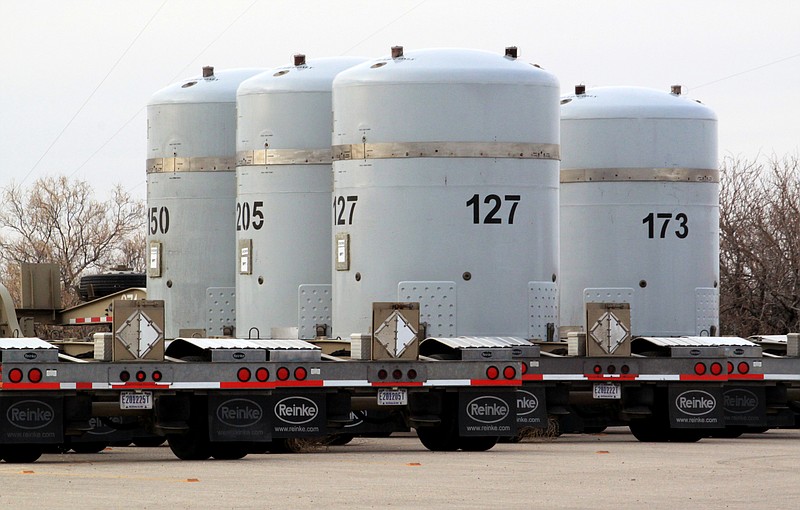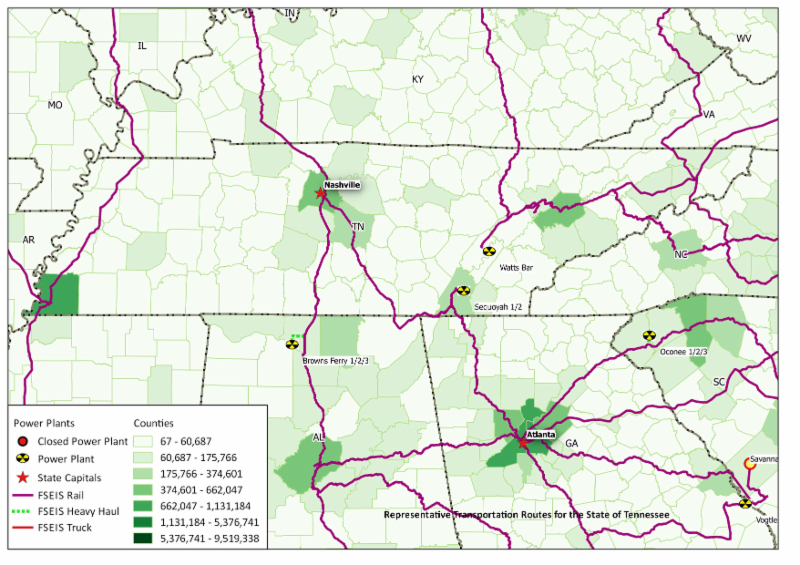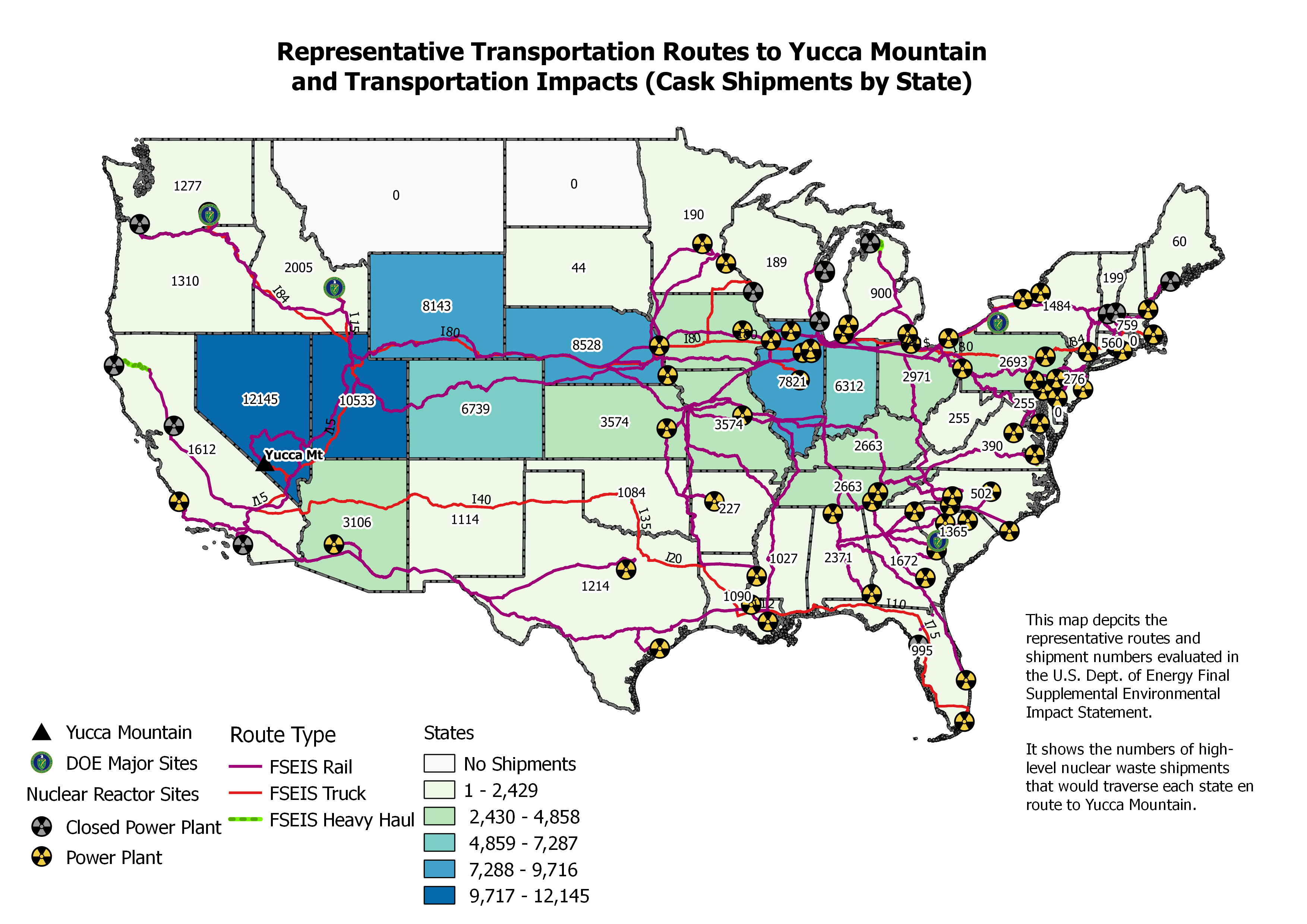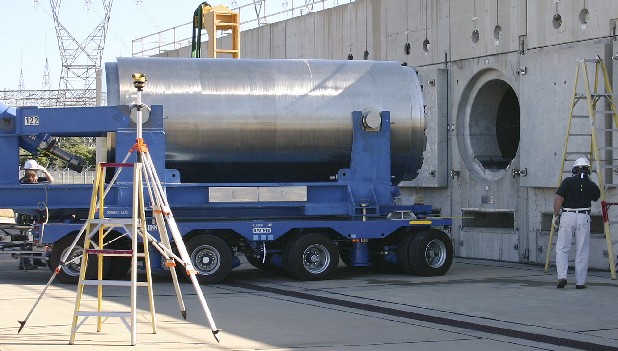The Tennessee Environmental Council, an anti-nuclear watchdog group, says that Chattanooga is a likely waystation for the transport of nuclear waste on its way to Nevada.
A map released by the group shows that radioactive waste from 30 nuclear reactors would pass through Tennessee by rail, each shipment containing more radioactive material than the Hiroshima bomb blast.
Chattanooga would likely see shipments from the Sequoyah nuclear plant pass through on its way south and west, while fuel from the Watts Bar plant would likely be transported north. Other shipments coming from Georgia and beyond could be transported through Chattanooga on its way to Nashville.
Nashville would see far more traffic, the group said, with waste from 21 reactors in 6 states passing through the city's Radnor Yard.
Under a plan that has been in the works for many years, but that has faced stiff opposition from many groups, nuclear fuel that is piling up at plants across the nation would be transported to a more secure facility in Nevada, dubbed Yucca Mountain. The facility, which is buried deep underground, would offer a safer storage option for the dangerous waste, which remains radioactive for thousands of years, officials say.
But both Nevada residents and a host of anti-nuclear groups in states along the likely routes have opposed the plan, saying a mistake is inevitable in the transport of so much fuel, estimated by the Tennessee Environmental Council at 20 tons to 50 tons of irradiated fuel in each canister.
The likely routes to be used to transport the fuel would be "vulnerable to attack or sabotage along the hundreds or thousands of miles that each cask would travel," the group warned in a news release.
But some on Congress worry that the danger is just as great, if not greater, when nuclear fuel is sitting in storage piles at dozens of sites across the U.S., each of which must be secured separately. Though U.S. President Barrack Obama has defunded the Yucca Mountain site, some lawmakers have proposed overriding objections by Nevada and others in order to store the fuel underground in a central repository.
The Tennessee Environmental Council also questioned whether first responders along the routes to Nevada have been trained to handle a "rad waste" accident, which could pose similar or worse hazards than recent derailments of oil trains, or trains carrying dangerous chemicals. To generate support in their efforts to stop nuclear power, the group has coined the routes "Fukushima Freeways," a reference to a nuclear plant in Japan that exploded after a Tsunami knocked out its power supply.
According to a data sheet supplied by Nevada officials, Tennessee would ship an estimated 2,663 of the large casks by rail, and Georgia would ship another 1,672, with Alabama shipping a further 1,514 casks.



